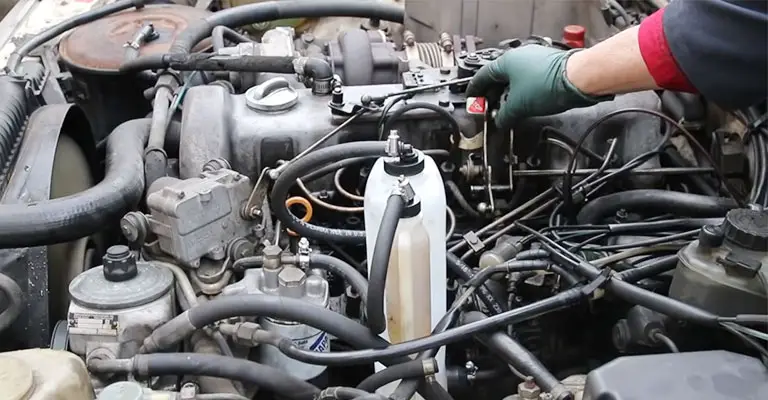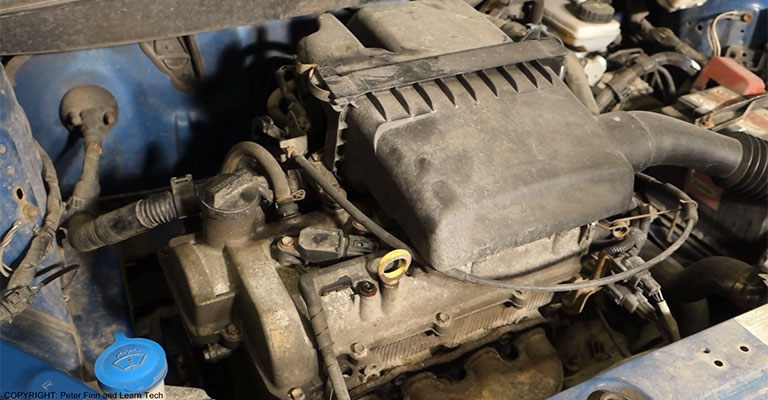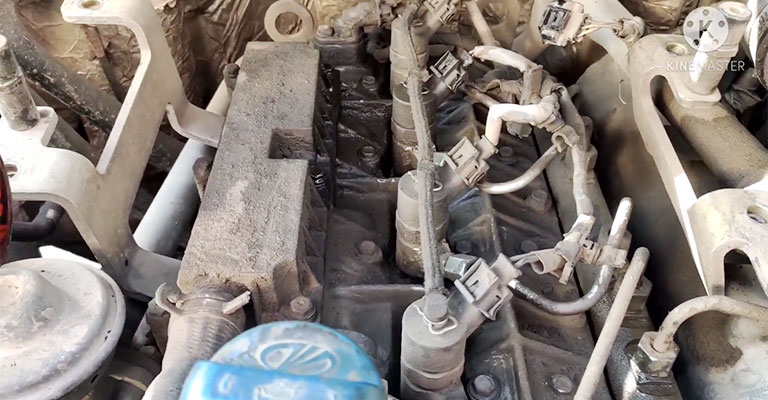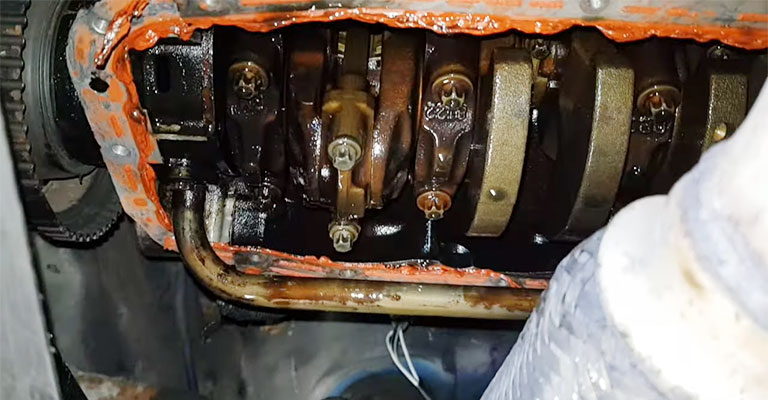While you start driving, you may think, why does my engine sound like a diesel engine? Engine noise is a typical issue that can be very unsettling.
Typically the potential causes your engine sounds like a diesel engine are a cold start, a malfunctioning fuel pump, a damaged ignition starter, improper camshaft timing, or even just a little bit of dirt on the spark plugs,
In such cases, engines make various unpleasant noises, from banging and knocking to shrieking and other unusual sounds. They can give you a lot of trouble if you ignore them. We’ll clarify the issue in more detail below.

Why Does My Engine Sound Like A Diesel Engine?
Diesel engines inject the fuel into the cylinder after the compressed air. Because their mechanics operate under more pressure, these engines are noisier than petrol-powered ones.
The noise is produced by numerous tiny pieces inside, including metal caps, miniature valves, and oil pipes. Diesel fuel is less filtered than gasoline and contains more particles, making it noisier when it ignites.
People frequently miss the unpleasant noises that indicate difficulties with diesel engines, which leads to complications.
How Were These Sounds Made?

The ignition delay phenomena that characterize compression-ignition engines bring this particular form of noise. Let’s go through it step by step;
- Before the vaporized fuel burns in the nearby, compression-heated air, there is a brief window of time after fuel injection starts.
- This small amount of fuel “detonates” (uncontrolled combustion) when it ignites, and the shock waves from the detonation hit the internal engine surfaces, producing an audible sound.
- Additional fuel is added to the combustion chamber after ignition continues to burn smoothly (controlled combustion) as the injection progresses until the infusion is finished.
- Higher cetane-rated diesel fuel can be notably quieter and will ignite faster or more quickly, lowering the amount of fuel that initially detonates.
- An engine is frequently noisiest right after a cold start because the ignition delay is also minimized when the engine heats up.
What Are Other Diesel Engine Noise Problems?

A diesel engine can make various disturbing noises, which may point to a different problem. Check whether you hear these noises when you start your automobile or while driving.
Rattling Sound After Speeding Up
When you speed your vehicle, you may hear this type of noise. It is caused by an air-fuel mixture in the cylinder being ignited prematurely by engine compression. This is known as pre-ignition, and it can cause damage to the engine’s valves, pistons, and connecting rods.
Ticking Noise From A Diesel Engine

Typically, it is brought on by moving parts such as pushrods, pistons, rods, and valves. The sound can indicate several problems, including low oil level, misaligned valves, rod knock, or a noisy lifter.
When The Diesel Engine Is Knocking
The injectors are responsible for the knocking noise. Usually, the lubrication in the purge minimizes the noise, but if the noise does not go away after fifteen minutes of operation, you should inspect the engine.
Noise In The Timing Chain Meshing
You must always maintain the timing chain because it unites the crankshaft and camshaft. A faulty timing chain makes a rattling noise whenever the engine gets cold and a muffled noise after the motor is thoroughly warmed up. These diesel engine problems are prevalent, and it is necessary to address them quickly.
How To Troubleshoot Diesel Engine Noise?
Engine noises should not be neglected. It is critical to identify the noises as they appear. What steps should you take if you hear any of the sounds described above? Let’s find out below;
- If you hear rattling, you’re probably using the wrong fuel. This could be an essential solution or something more involved, such as a belt tensioner, which uses force to generate or sustain tension.
- A ticking sound from a diesel engine can indicate a low oil level. It prevents the valvetrain components from obtaining appropriate lubrication. Examine your oil level immediately, and if it is low, have your automobile serviced.
An unreliable lifter or a damaged connecting rod are potential additional offenders for this loudness. The unfortunate thing is that you must rebuild the engine.
- The diesel engine knocking isn’t necessarily a cause for alarm. Because your injectors are not well-greased, they are knocking. If you use good gasoline, the injectors will quit hitting and clicking. The simple solution is to replace the injectors.
- The timing chain’s laxness is typically the cause of noise in the system. It will shred if you hang it from a hook for too long. This can severely harm your engine and cost you a lot of money. That is why you must tackle the situation as soon as possible.
Leave a Reply